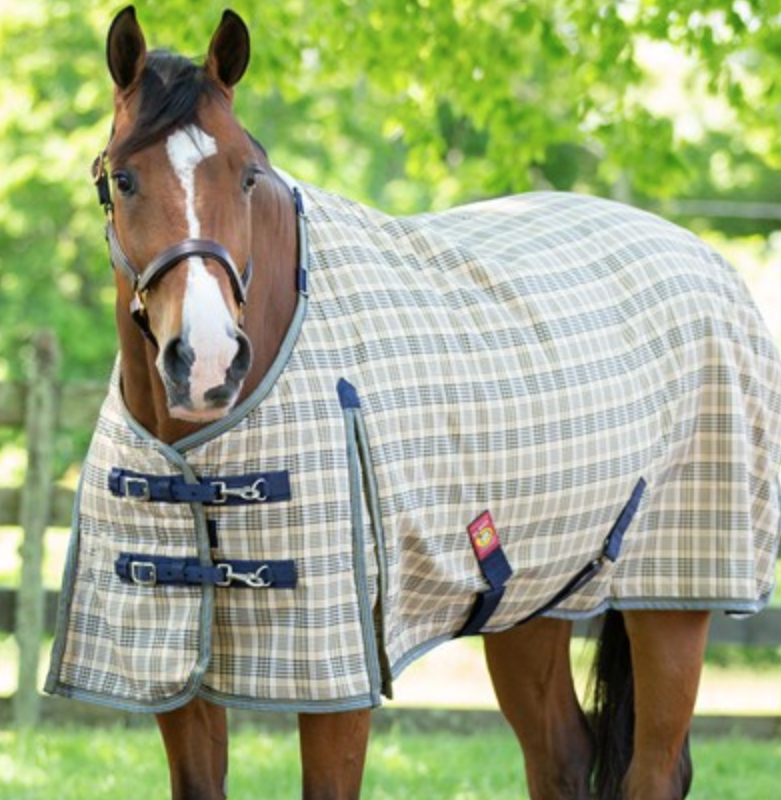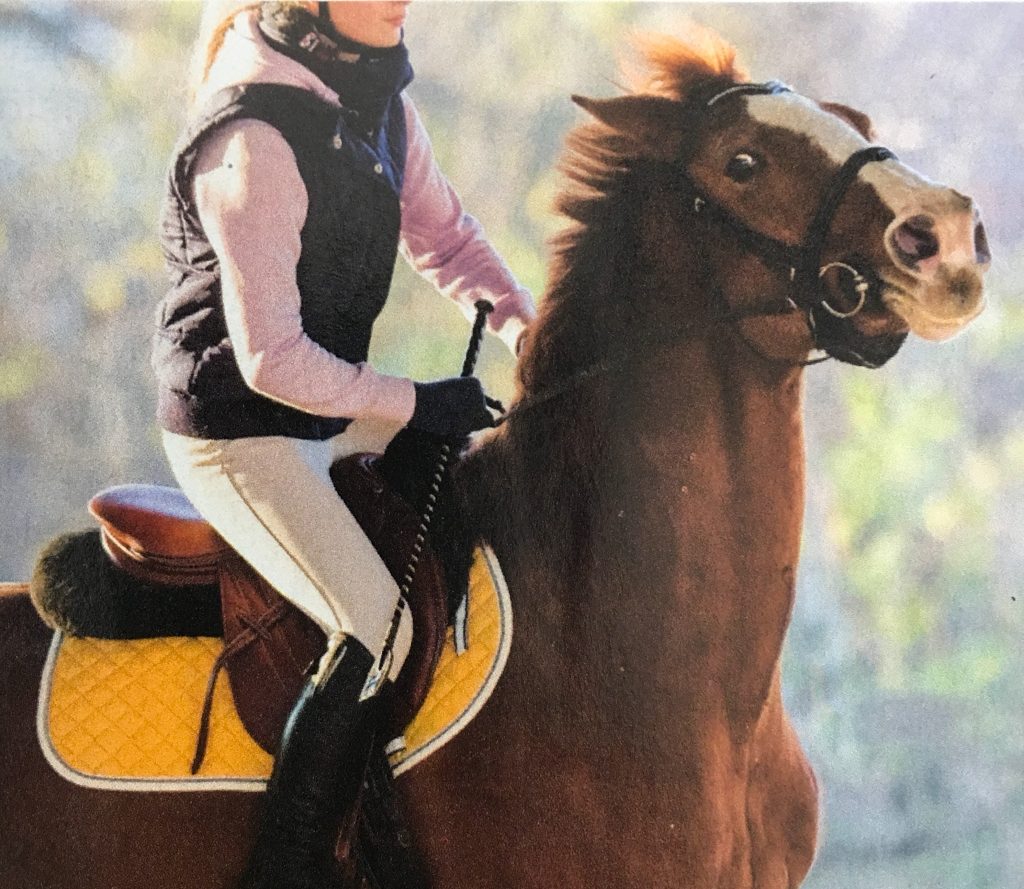Permit me a few peeves:

Poor thing, #1
1. It’s that time of year. Like clockwork, scheduled with the turning of the leaves, I received two catalogs highlighting horse blankets this week. There were Easy Motion blankets, High Neck blankets, heavy-duty blankets, fleece-y blankets. red, blue, plaid, and colorblock blankets. There were consultants available, printed temperature guidelines, and multi-year guarantees.
These companies would like to convince us that we are straight-up bad, bad, bad horse owners if we don’t order a blanket. Otherwise our horses are sure to suffer (suffer!) through winter.
Better yet, we should order three or four: one for rain and cool temps, one for snow, wind, and colder temps, and a special one for the twice-a-year blizzard conditions. And don’t forget the stretchy shoulder guard gizmos – they’re like Under Armour tank tops for your horse to prevent rubs caused by, um, er, those very blankets you just shelled out for.
Arghhhh!
Most horses do not benefit from blanketing and some may colic when the blanketing hinders their ability to take care of themselves. Horses have evolved to thermoregulate just fine. Just ask the wild horses who live long lives on the range. Just ask the tens of thousands of horses turned out to winter pasture in the western U.S. and left to “fend for themselves” until spring. Just ask my horses, aged four to 20, who do quite well in temperatures from -15 degrees to 95 degrees, without my messing with them.
The key to their wellness is not our micromanaging their thermoregulation (which can go horribly wrong when an owner blankets on a mild, sunny day and virtually cooks the poor animal), but our offering adequate hay (undoubtedly more hay in the winter than during warmer months), freedom to move, and (less often than you’d think) shelter.
Read more about the horse’s own ability to thermoregulate and the hazards of blanketing here.

Poor thing, #2
2. In one of these aforementioned catalogs, I noted the tease: “Spooky Horse? Relax, we can help!” Since it’s always interesting to learn about different training strategies for spooky horses, I thumbed immediately to the listed page. Ee-gads! It was a full, two-page spread of supplements designed to calm your horse during “Spooky Season.” I thought we called this time of year, autumn or fall. Who knew?
To paraphrase the selly-sell: Colder weather makes horses more “on edge.” Buy something to chill them out.
The pages feature a rider, crop in hand, pulling on the reins like she was hauling in a Gulf of Mexico marlin. The whites of her horse’s eyes were visible and its tail was up. I felt badly for the fella.
Instead of helpful riding strategies: “if your horse wants to move, let him move but give him direction” or “let him graze and investigate his surroundings” it was magnesium, Tryptophan, Inositol, chamomile, raspberry, chasteberry, and passionflower.
I wanted to ask this company: Dude, like, when you gonna offer some reefer to me and my pony? Like, it would help us be one with the universe, man.
Here’s what supplement companies don’t tell you:
- There’s no guarantee that what they say is in a given supplement is actually in there. Supplement outfits (for human, dogs, horses, etc.) are notoriously unregulated.
- There’s also no guarantee that supplements have any actual effect.
- Some supplements, when overdosed, can impact horses negatively.
Aside from adding selenium to a horse’s diet in areas where there is a dearth of selenium in the soil (and therefore little selenium in hay and grass) and offering free-choice salt, research doesn’t support this pricey habit. Read more about supplements here.
Let’s challenge our brains, not our wallets. Let’s solve our problems with real solutions, not sugar pills and consumerism-masquerading-as-do-goodism. Our horses will thank us.
Thank you for this article, Maddy! We live in an equestrian area and I have a few boarders on our property. This discussion about blankets and supplements is a constant conversation, and my partner and I agree with you! We feel if you do your research, understand their nature and how they “think”, and want them to be natural and happy, you will do the right thing by them. Thanks for all you do to keep us informed!!
I was at first really worried about the picture you posted here. I am glad you explained what was going on because this goes against all Best Horse Practices.
Thanks Maddy! It’s always frustrating to hear folks discussing the best blanket for their horse as if NO blanket is even a consideration.